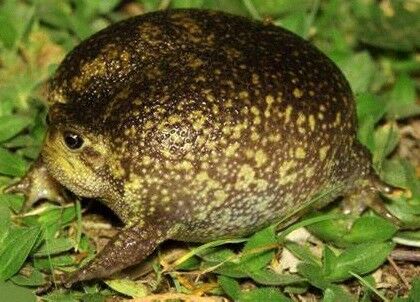Common Health Issues in Reptiles: Signs And Symptoms and Solutions
In the complex globe of reptile care, comprehending the typical health problems that may impact these special animals is critical in ensuring their wellness. Whether it's grappling with parasitic invasions, navigating dehydration issues, or attending to skin ailments that show up in subtle ways, being attuned to the symptoms and equipped with the expertise of effective remedies is essential for any kind of reptile proprietor.
Respiratory Infections
Breathing infections in reptiles can substantially influence their total health and wellness and require prompt focus from knowledgeable vets. In reptiles, respiratory infections can be specifically challenging to detect and treat due to their one-of-a-kind composition and physiology.
Therapy for breathing infections in reptiles commonly entails a combination of supportive treatment, such as preserving proper humidity levels and temperature level gradients in the room, in addition to targeted medication to resolve the details microorganism responsible for the infection. It is important for reptile proprietors to check their family pets carefully for any kind of indicators of respiratory system distress and seek vet treatment at the earliest indicator of an issue. With prompt treatment and appropriate therapy, many reptiles can recoup fully from breathing infections and return to normal tasks.

Metabolic Bone Disease
What aspects contribute to the development of Metabolic Bone Disease in reptiles?
Metabolic Bone Illness (MBD) in reptiles is mostly created by a lack of correct calcium, phosphorus, and vitamin D3 degrees in their diet. Additionally, inadequate direct exposure to UVB light prevents reptiles from synthesizing vitamin D3, which is important for calcium absorption and bone health and wellness.
Various other adding factors to MBD consist of inappropriate temperature level slopes within the reptile's habitat, resulting in reduced metabolic rate and damaged calcium absorption. Not enough humidity degrees can additionally impact a reptile's capacity to metabolize calcium effectively. Additionally, certain reptile species have details nutritional needs that, if not satisfied, can enhance the probability of establishing MBD. Regular vet exams, correct husbandry practices, and a well balanced diet plan are necessary to prevent Metabolic Bone Disease in reptiles.
Parasitical Infestations
Parasitical infestations pose a substantial health and wellness risk to reptiles, impacting their overall health and needing timely veterinary focus. Reptiles can be impacted by numerous parasites, including mites, ticks, interior worms, and protozoa. These parasites can cause a variety of signs, such as fat burning, sleepiness, skin irritation, looseness of the bowels, and even death if left untreated.
One usual parasite located in reptiles is the mite, which can create skin stress, irritability, and anemia. Ticks are one more external parasite that can cause and transfer illness pain to the reptile. Internal bloodsuckers like worms and protozoa can result in digestive problems, malnutrition, and compromise the reptile's immune system.
To detect a parasitical infestation, a veterinarian might carry out fecal examinations, skin scrapings, or blood examinations. Treatment often involves deworming medicines, antiparasitic bathrooms, or in extreme instances, hospitalization. Preventative review measures such as regular veterinary examinations, appropriate hygiene, and quarantine procedures for new reptiles can help reduce the risk of parasitical problems and make certain the well-being of reptile pets.
Dehydration and Hydration Issues
Dehydration in reptiles can considerably impact their health and wellness and health, necessitating timely intervention and appropriate hydration monitoring. Reptiles are vulnerable to dehydration as a result of different variables such as poor water intake, high environmental temperatures, and particular health conditions. Symptoms of dehydration in reptiles include click for more sunken eyes, sleepiness, loss of skin flexibility, and lowered peeing. Dehydration can lead to severe health and wellness issues and even be fatal to the reptile - rain frog for sale. if left untreated.
To avoid dehydration, reptile owners need to make sure that their pets have accessibility to clean water at all times. The water dish need to be huge enough for the reptile to take in if needed, especially for varieties that take in water via their skin. In addition, preserving correct humidity levels in the reptile's room and giving routine bathrooms can help protect against dehydration.
In situations of dehydration, it is essential to seek veterinary care without delay. A veterinarian might administer fluids either orally or through shots to rehydrate the reptile. It is important to address the underlying reason of dehydration to stop recurrence and make sure the reptile's overall well-being.
Skin Conditions

Conclusion

Respiratory system infections in reptiles can significantly impact their overall wellness and call for prompt focus from skilled vets (rain frog for sale). Preventative steps such as regular vet check-ups, appropriate health, and quarantine procedures for new reptiles can aid reduce the risk of parasitical infestations and guarantee the health of reptile animals
If left neglected, dehydration can lead to serious health concerns and also be deadly to the reptile.
Frequently evaluating navigate here your reptile for any type of adjustments in skin appearance, texture, or color can help in very early detection and therapy of skin conditions, advertising the overall health and wellness and health of your flaky friend. - rain frog for sale
In conclusion, reptiles are prone to different wellness problems such as breathing infections, metabolic bone condition, parasitic invasions, dehydration, and skin ailments.
Comments on “Looking For Rain Frog for Sale? Locate Your Perfect Amphibian Friend Right Here!”